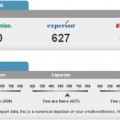If you live in the U.S. and you watch TV, you’ve probably seen the ads promoting reverse mortgage loans to the 62 years and older crowd, starring famous celebrity faces such as Henry Winkler and Robert Wagner.
Whether or not its due to the marketing appeal of “Fonzie”, the MetLife Mature Market Institute has found that nearly 35 percent of older Americans are using their home as collateral with a reverse mortgage loan. So, exactly what is a reverse mortgage and how does it work?
What Is A Reverse Mortgage?

Reverse mortgages enable homeowners to access tax-free money without the hassle of monthly payments or selling their precious homes. Its an alternative for homeowners with significant equity built up to relatively higher interest personal loans. All repayment of the loan is deferred until the loan borrower is no longer living in the home or no longer living period. However, once the loan becomes due, it is important to remember that it must be paid in full with all the interest and financed closing fees that have slowly accrued over time. Luckily, there is a rule that the reverse mortgage can never exceed the value of your property at the time the loan needs to be repaid.
In order to be eligible for a reverse mortgage, there are a number of essential criteria that borrowers must meet to be considered for the loan. Borrowers must be at least 62 years old, occupy their home as their primary place of residence for the majority of the year, and own the home outright or have an extremely low balance on an existing mortgage that can be paid off quickly. In terms of property types that are acceptable for the reverse mortgage, borrowers must own a single family one-unit home or a two to four unit owner-occupied home. In some instances, borrowers with a condominium, planned unit development, manufactured home, or mobile home will become eligible too.
How Does a Reverse Mortgage Work?
When older Americans make the leap towards a reverse mortgage, the amount of money that they can receive is determined on the age of the youngest borrower in the residence, existing interest rates from the lender, and appraised value of the home in the current market. Borrowers will begin by paying a mortgage insurance premium (MIP), which is intended as protection to ensure he or she continues receiving payments from the lender no matter what. Interest and fees will be added to the principal balance each month, thus causing the loan balance to increase. However, borrowers could remain in the home and avoid repayment indefinitely, so long as all obligations are being met.
For those of you who fulfill the requirements for a reverse mortgage and are interested in turning some of your equity into cash flow, it is highly recommended that you meet with an HUD-approved HECM counselor to discuss your options. Counselors will be able to inform you of the financial implications of the decision, alternatives to receiving a reverse mortgage, specific provisions about the mortgage becoming due, and plans for repaying the loan if needed.
From there, you can make the final choice whether the reverse mortgage is right for you and contact an FHA-approved leader to get started.












Good post. The reverse mortgage should be something at least considered by many seniors with advice from a trusted financial adviser.